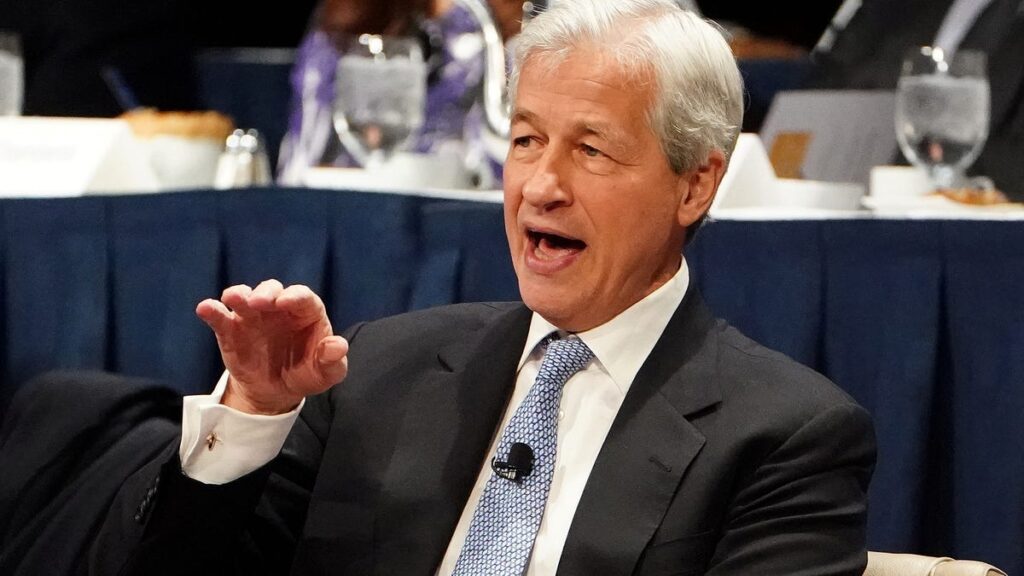Atlanta wine store owner braces for Trump tariffs
Adam Williams, owner of Ansley Wine Merchants in Atlanta, Georgia said, “A 20 percent increase on European wines is huge, because European wines are about 80 or so percent of the wine in the store.”
JPMorgan Chase CEO Jamie Dimon on Wednesday said President Donald Trump’s sweeping tariffs will likely lead to defaults by borrowers and a recession.
“So long as you have rate going up…inflation is sticky and credit spreads are gapping out, which they’re going to, I think you’ll see more credit problems,” Dimon told Fox Business’ Mornings with Maria.
What happens in a recession?
Informally, a recession is considered at least two straight quarters of declining economic output. But the technical definition is “a significant decline in economic activity that is spread across the economy and lasts more than a few months,” according to the nonprofit National Bureau of Economic Research.
The measure is based on employment, income, consumer spending and industrial production, among other criteria. An economic slump is generally accompanied by hundreds of thousands or millions of net job losses and rising unemployment.
Many forecasters believe a recession lies ahead because businesses socked with hefty tariffs on imported goods will likely pass all or much of the costs along to consumers, sapping their purchasing power and leading them to cut spending. Consumption makes up about 70% of economic activity.
Such a spending pullback is also likely to dampen company sales, Dimon suggested, causing some firms to fail to make debt payments and default on loans.
What’s the latest in the trade war?
In the latest tariff development, China on Wednesday said it will lash back at Trump’s outsized import fees by slapping U.S. goods with 84% tariffs starting Wednesday, up from the 34% duty it previously announced, the finance ministry said.
“If the U.S. insists on further escalating its economic and trade restrictions, China has the firm will and abundant means to take necessary countermeasures and fight to the end,” the Ministry of Commerce wrote in a document released Wednesday.
Trump previously bumped up the U.S. tariff on Chinese shipments to 104% after China responded to Trump’s own 34% reciprocal tariff with its own similar fee.
Trump’s reciprocal tariffs, theoretically aimed at matching the fees other countries charge for U.S. shipments to their countries, included a minimum 10% fee and additional charges of up to 50% on more than 50 nations. Those took effect Wednesday.
The president already had imposed a 20% fee on China; 25% on imported steel and aluminum; 25% on all imported cars and light trucks; and 25% on some goods from Canada and Mexico not covered by a trade agreement.
